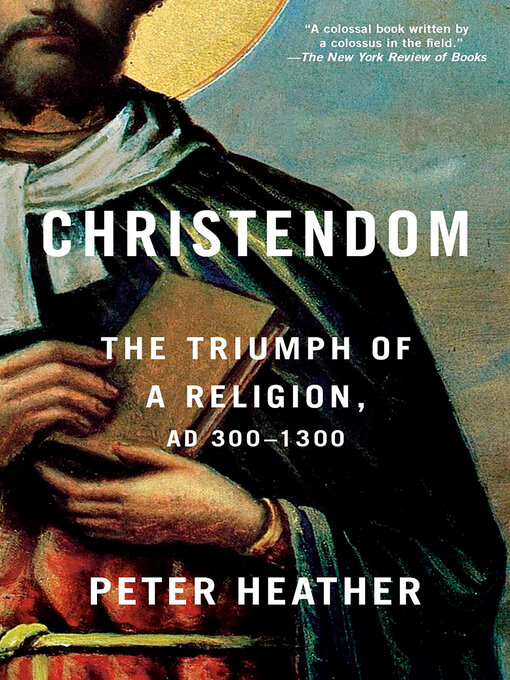
In the fourth century AD, a new faith grew out of Palestine, overwhelming the paganism of Rome and resoundingly defeating a host of other rival belief systems. Almost a thousand years later, all of Europe was controlled by Christian rulers, and the religion, ingrained within culture and society, exercised a monolithic hold over its population. But how did a small sect of isolated and intensely committed congregations become a mass movement centrally directed from Rome? As Peter Heather shows in this illuminating new history, there was nothing inevitable about Christendom's rise and eventual dominance.
From Constantine the Great's pivotal conversion to Christianity to the crisis that followed the collapse of the Roman empire—which left the religion teetering on the edge of extinction—to the astonishing revolution of the eleventh century and beyond, out of which the Papacy emerged as the head of a vast international corporation, Heather traces Christendom's chameleonlike capacity for self-reinvention, as it not only defined a fledgling religion but transformed it into an institution that wielded effective authority across virtually all of the disparate peoples of medieval Europe.
Authoritative, vivid, and filled with new insights, this is an unparalleled history of early Christianity.
-
Creators
-
Publisher
-
Release date
April 4, 2023 -
Formats
-
Kindle Book
-
OverDrive Read
- ISBN: 9780451494313
-
EPUB ebook
- ISBN: 9780451494313
- File size: 98389 KB
-
-
Accessibility
-
Languages
- English
-
Reviews

Loading
Formats
- Kindle Book
- OverDrive Read
- EPUB ebook
subjects
Languages
- English
Why is availability limited?
×Availability can change throughout the month based on the library's budget. You can still place a hold on the title, and your hold will be automatically filled as soon as the title is available again.
The Kindle Book format for this title is not supported on:
×Read-along ebook
×The OverDrive Read format of this ebook has professional narration that plays while you read in your browser. Learn more here.